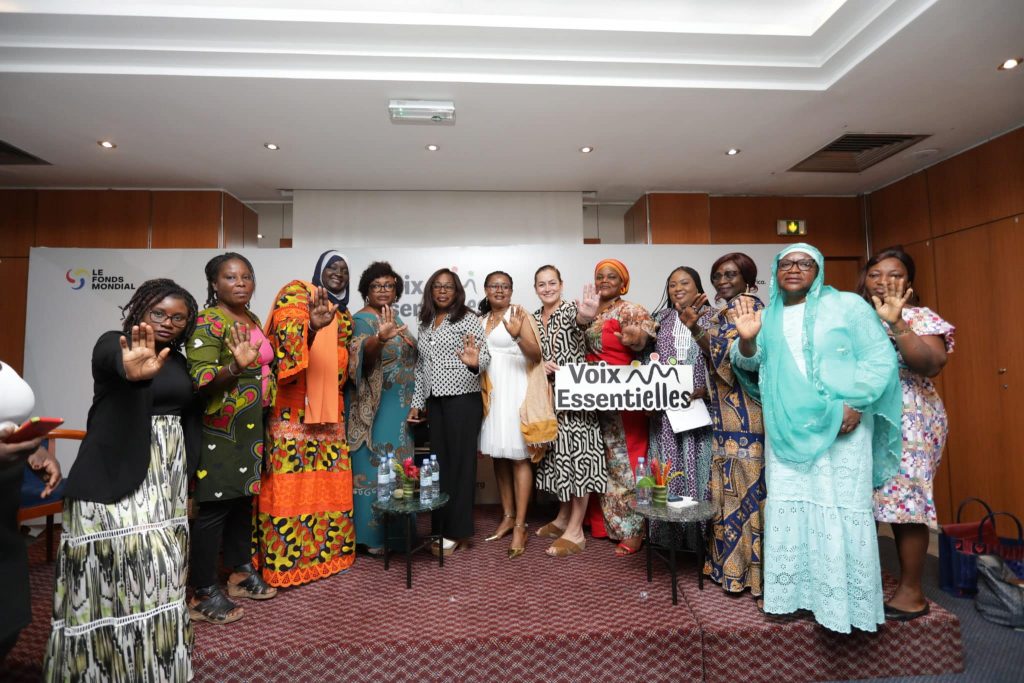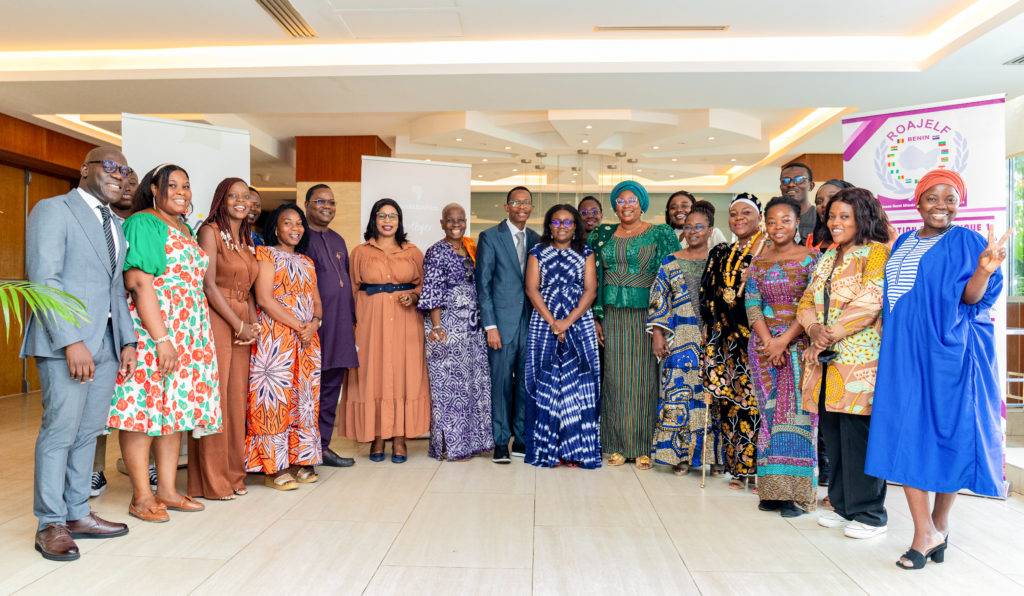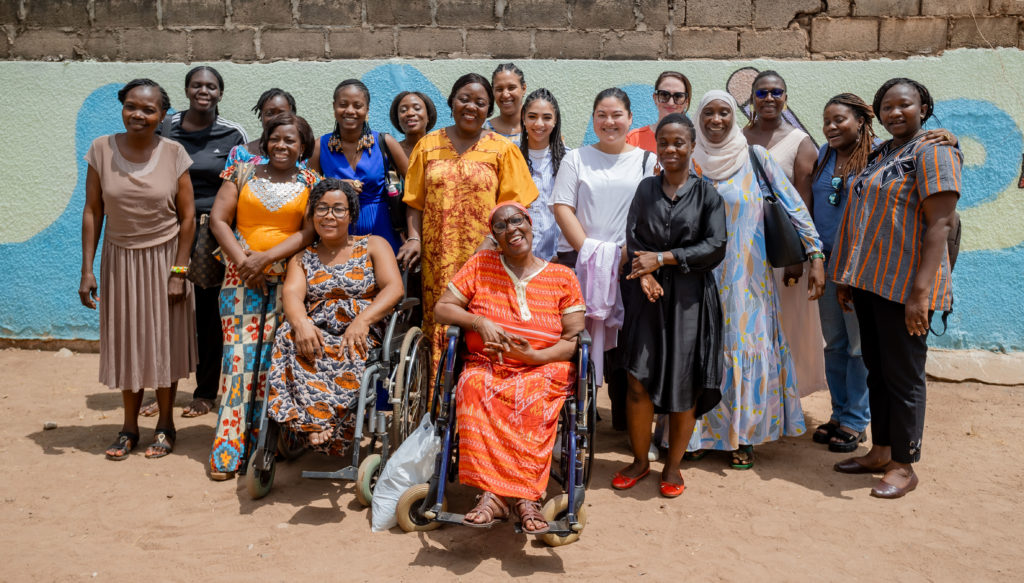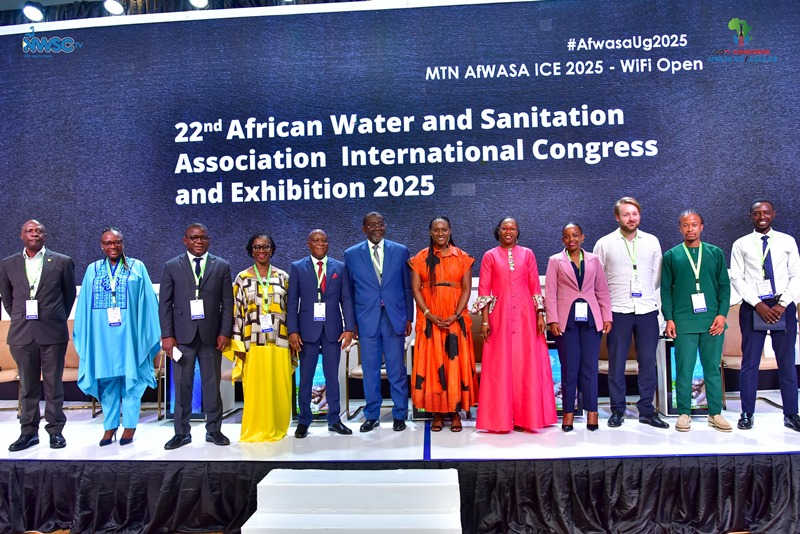Voix EssentiELLES in action…

In many countries, gender inequalities still lead to discrimination and violence against women and girls as a result of social, cultural, legal and economic norms. These persistent inequalities prevent women from enjoying their rights and from actively participating in decision-making on issues that affect their lives. UN Women even estimate that it would take 300 years to overcome inequalities relating to legal protection or representation of women in the fields of power and leadership.
Fortunately, community-based women’s organisations are working to reduce this gap by ensuring that women and girls are involved in decision-making processes that affect them. Through the Voix Essentielles initiative, these organisations in Burkina Faso, Senegal and Côte d’Ivoire are helping to amplify women’s voices and improve access to health services for them all.
Some of their activities, highlighted by Moussonews…
Sope Sa Njabot: heroines in the community response to Tuberculosis
In Senegal, Sope Sa Njabot has been informing, raising awareness and advising people on all aspects of the fight against tuberculosis since 2006. A community approach that is bearing fruit in Mbour thanks to support from Speak up Africa through the Voix Essentielles programme.
In Mbour, located on La Petite-Côte, about 80 km south of Dakar and bordering the seaside resort of Saly, Alimatou Sadiya Samb, community liaison officer for the Sope Sa Njabot association, regularly visits people in her neighbourhood to show them how to protect themselves against tuberculosis. This community volunteer is involved in a campaign to prevent and treat tuberculosis, even in the most remote areas of her commune during the rainy season. (…) Alimatou Sadiya Samb fully embraces her mission.
« We sometimes come across people with mental disorders or people with disabilities living with the disease without help. We are the relays who become their mothers and fathers. We are the ones who make sure they get better because they have no one to help them. »Alimatou Sadiya Samb, community relay of the association Sope Sa Njabot
The Bajenu Gox in Thiès have succeeded in improving mother and child health
Senegal has recorded good results in terms of infant, neonatal and maternal mortality in recent years. Behind this success lies a tremendous effort by the Bajenu Gox. We went to Thiès to see the recipe for the success of these “neighbourhood godmothers”, recipients of Voix Essentielles funds.
On a chilly morning, after light rain had fallen on Thiès the day before, the Bajenu Gox, all dressed in white, organised a chat session, one of their flagship activities. At these events, they share their knowledge with each other. Adja Fatou Badiane, a Bajenu Gox (which means “neighbourhood godmother” in Wolof), heads the Bajenu Gox association of Thiès, which has more than 250 active members. (…) Adja Fatou Badiane describes the main areas they work in:
« We advocate for action in three areas to reduce maternal mortality. The first one is about women’s decision to wait too long before going to hospital. We raise women’s awareness so they don’t wait for the last minute before going to a health facility. Going to hospital late poses enormous risks. Secondly, we also intervene in the late provision of care in hospital. Finally, difficult access to certain health structures is our third area of advocacy. »Adja Fatou Badiane, Bajenu Gox
Tuberculosis: 200 lesbians cared for by “Coeur Valide” in Côte d’Ivoire
People suffering from tuberculosis are cared for and monitored free of charge by the association – Coeur Valide – in San Pedro in Côte d’Ivoire. Among them are more than 200 lesbians. Their support is further facilitated by the Voix Essentielles programme.
Being a lesbian and having a disease like TB is an uphill struggle in Côte d’Ivoire. In San Pedro, the Coeur Valide association keeps coming to their rescue. Christiane, 30, owes her survival to this association. She is a trader who belongs to this sexual minority, and has suffered from tuberculosis for a long time. She is now cured thanks to the association’s monitoring programme. With a lump in her throat and her eyes filled with tears, the young woman testifies that she has survived thanks to the care provided by Cœur Valide.
« The disease was slowly eating away at me. I was suffering on a daily basis. But when I found out about the Cœur Valide project, I was able to benefit from the care provided, free of charge. I feel much better. »Christiane, trader
Côte d’Ivoire: Fenac advocates for the distribution of sanitary towels in schools
The issue of menstrual hygiene management is a concern in many African countries. Menstruation is sometimes a reason for girls to drop out of school. In Côte d’Ivoire, the association Femme en Action (Fenac) advocates for the distribution of hygiene kits in schools. It has carried out several activities and campaigns to raise awareness as part of the Voix Essentielles programme.
Adopting a policy to distribute sanitary towels to teenage girls in schools in Côte d’Ivoire is now the Femme en action association’s fight. Nadège Epi Kouadou, the project’s coordinator, has not had a moment’s rest since she began supporting Speak Up Africa with the Voix Essentielles programme for the Top fille project. With her team, she travels to establishments in Abgoville, 71 kilometres from Abidjan, to raise awareness about menstrual hygiene management.
Bittou: The widows and orphans association halts the spread of malaria and tuberculosis
Malaria is the leading cause of mortality in Burkina Faso. Among the thousands of preventable deaths are several women and children. In Bittou, a town on the Ghana and Togo border, the Widows and Orphans Association is at the forefront of the fight against this deadly endemic with support from the Voix Essentielles fund.
Although the mother acts to guarantee the wellbeing of children, households and the community, the decision to seek health care does not rest with the head of the household. This gender inequality slows down the many efforts underway to control and eliminate malaria in the Centre-East region of Burkina Faso. The Bittou Association of Widows and Orphans (AVORB) aims to break this social barrier through its malaria and tuberculosis prevention advocacy.
For six months, the president of the association, Maïmouna Savadogo, and her facilitators held information sessions for women on how to prevent malaria and on how important it is for them to seek health care. Heads of households are also educated during these community talks
Sexual and reproductive health: lives saved by Gnintawoma
Discussing sexual health issues in the commune of Garango, a town in the Centre-East region of Burkina Faso, could be considered an affront to morality. Strategically and with a community-based approach, as part of the Voix Essentielles programme, the Gnintowama association has been able to establish exchanges around the issue of sexual and reproductive health. Thousands of local women and girls are now enlightened on the subject and make independent decisions.
Sabine (not her real name), 17, owes her life to the Gnintawoma association. She had tried to have a clandestine abortion. The bleeding hadn’t stopped, to the extent that some of her friends were concerned about her health. The educational talk held by the Gnintawoma association in their school came as a sound of relief. At the end of May 2022, Sabine’s high school in Garango was chosen for a campaign to raise awareness on the dangers of abortion and drugs, but also on contraceptive methods to avoid unwanted pregnancies


